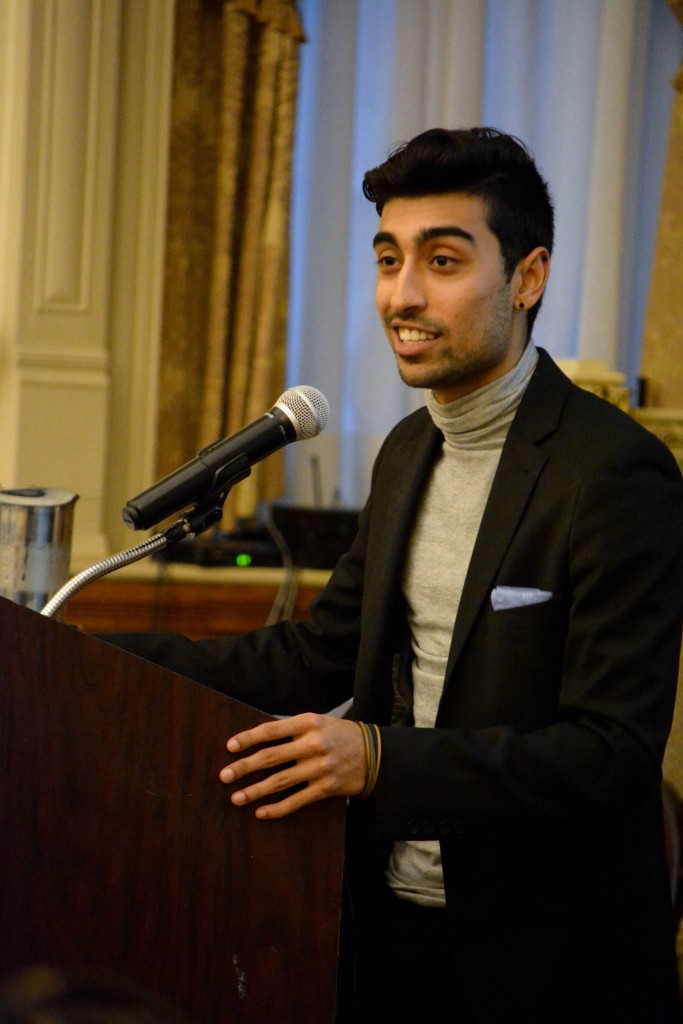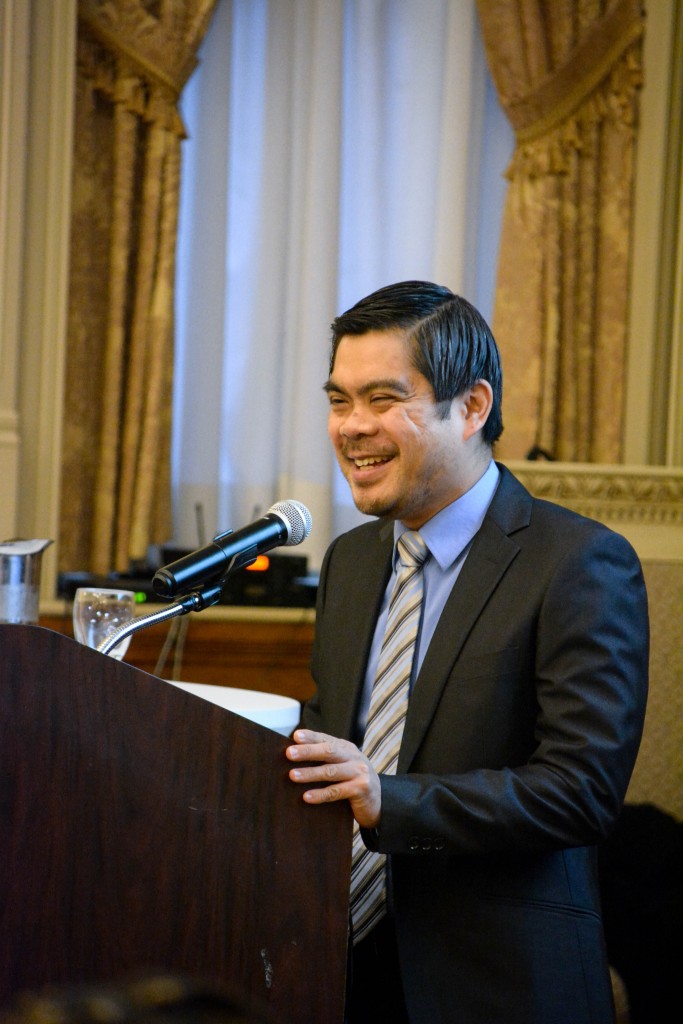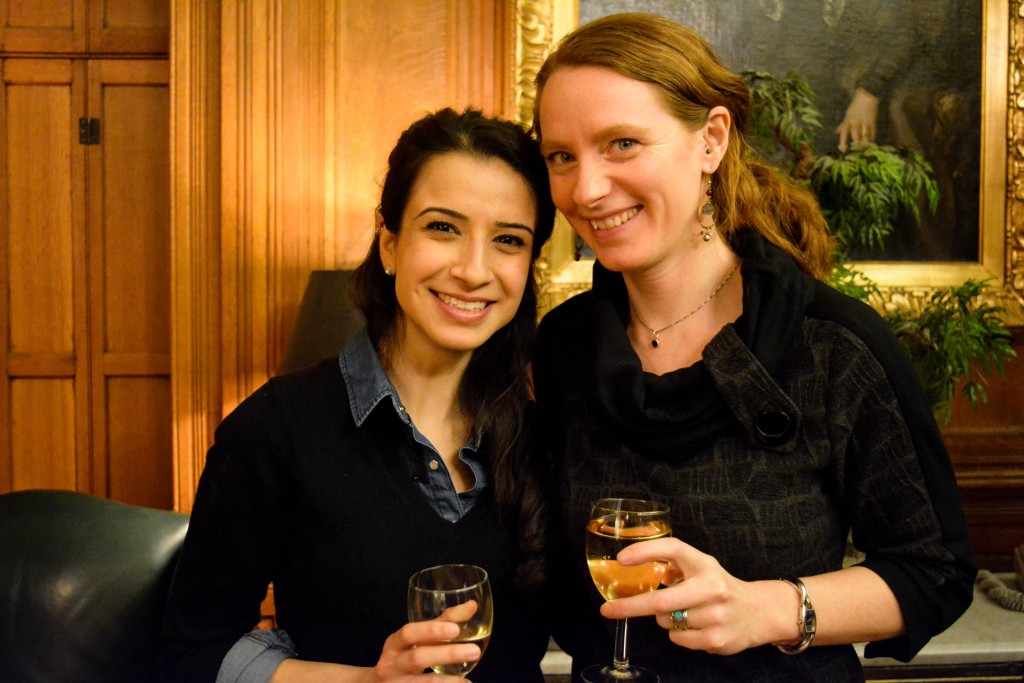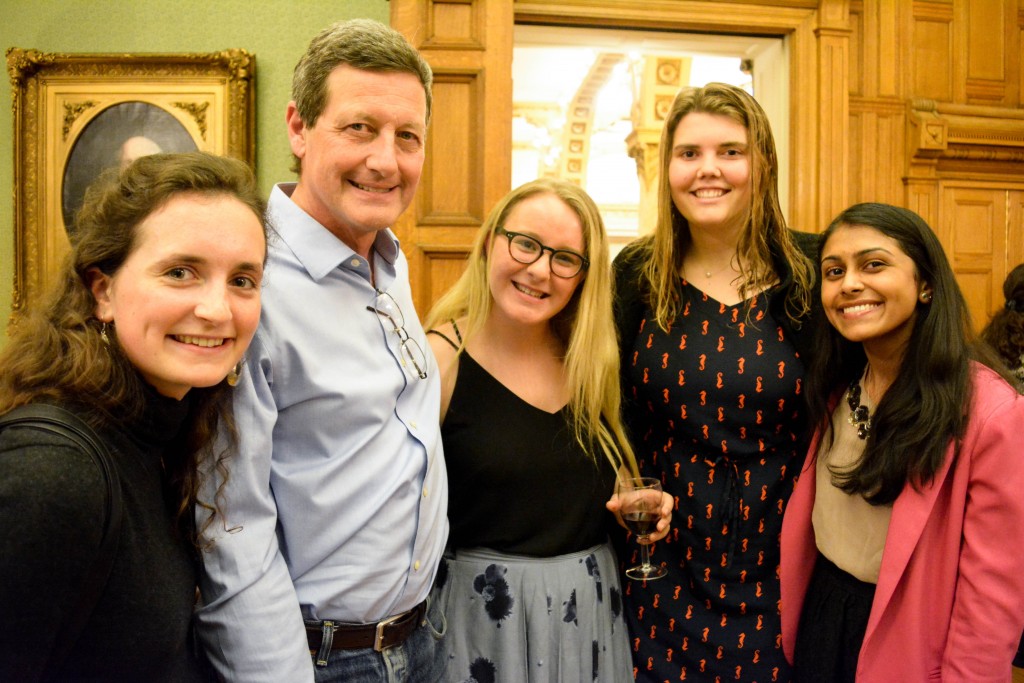It’s not often that McGill students are invited to spend their evening at the renowned Faculty Club, located at 3450 Rue McTavish. On the night of April 7th, 2016, eighty political science students and faculty convened in the club’s ballroom to celebrate the PSSA Professor Awards. The executives of the Political Science Students Association (PSSA) recognized ten faculty members for their outstanding achievements within their respective courses. The Winter 2016 publication of the McGill Journal of Political Studies (MJPS), a fitting accompaniment to the awards ceremony, was also released at the event. The Journal, which is a culmination of the best research and writing within the political science faculty, “exists to spotlight the top research by McGill students […] including works that are unique and present a new perspective within academia,” said Erica Pedersen, Editor-in-Chief.
Ten: The Winning Number
Below is a comprehensive list of the winners for the 2016 PSSA Professor Awards. Faculty were awarded both for conducting the best course within their subject, such as Best Canadian Political Course, as well as broader awards, like most accessible professor and overall-best Teaching Assistant.
Awards are listed in order of presentation.
Political Science Course of the Year: Professor Erik Kuhonta, POLI 369: Politics of Southeast Asia
Most Accessible: Professor Manuel Balan
Best Lecturer: Professor Leonardo Baccini
Canadian Political Course of the Year: Professor Richard Schultz, POLI 221: Government of Canada
Comparative Politics Course of the Year: Professor Cassandra Steer, POLI 330: Law and Courts in East Central Europe
Political Theory Course of the Year: Professor Jacob T. Levy, POLI 334: Western Political Theory
International Relations Course of the Year: Professor Vincent Pouliot, POLI 449: Diplomacy in Practice
Honours Seminar of the Year: Professor Fernando Nunez-Mietz, POLI 575: The International Law and Politics of Human Rights
TA of the Year: Juliette Bronchtein
Professor of the Year: Professor Mark Brawley
Political Science Student’s Association
Alongside the Professor Awards, the Political Science Student’s Association also honoured graduating and incoming student executives of the organization for their work within the Political Science faculty. Richad Hirani, current PSSA President, stated that “the PSSA facilitates engagement between professors and students, giving [the department] a much-needed sense of community”.
Tofunmi Odugbemi, the incoming PSSA President and current VP Events, is looking forward to “keeping lines of communication open so that events run smoothly” in the coming year. The 2015-2016 executives planned a series of events, including an Inter-Party Debate between McGill students involved in the Liberal, Conservative and New Democratic Parties during the Fall 2015 federal election, as well as a screening of the election at Gerts Bar.
Repeatedly emphasized throughout the night by professors and executive members of the PSSA alike was the importance of fostering a sense of commonality within the program, while also working to build connections with members of different departments.
“We have a great set of colleagues, number one, and we also have wonderful students both at the undergraduate and graduate level so it makes it really easy,” said Mark Brawley, winner of the Professor of the Year Award. “It makes it exciting to teach because you can see your students taking on these new ideas and running with them.”
McGill Journal of Political Studies
The PSSA also took the opportunity to announce the release of the Winter 2016 edition of the McGill Journal of Political Studies (MJPS). The papers touch on a range of topics, such as piracy, the Islamic State, and race relations in the United States. Nicholas Dunkerley, a member of the MJPS’ editorial board, highlighted the importance of compiling works from the previous year into one comprehensive publication when he said,
I think a lot of it really gets forgotten…you do your course, you do a paper, you hand it in, you get your grade, and that’s sort of the end of it. But it’s great to commend the work that goes into [Political Science writing]…often they aren’t just last minute creations, but instead genuinely great papers and great ideas.
The MJPS has been working hard to raise its level of legitimacy in recent years. The Winter 2016 edition became the first journal at McGill to be featured in the directory of open access journals, and was also the first edition to use the double-blind peer review process, a new improvement which conceals the identities of both the scholar and the reviewer in order to reduce bias.
Many publications at McGill tend to entirely dominate in English, but MJPS also publishes in French. Editor-in-Chief Erica Pedersen recognized the multicultural audience her team is publishing for, stating, “…it’s a cultural commitment, going to McGill, you are imbedded in Montreal…it’s a bilingual city, and we really try to pull that into academia and reflect the diversity of the student body”.
The MJPS is available to students in print as well as via the McGill Library Website.
Sentimental Studies
A feeling of pride and support filled the room as President Richad Hirani wrapped up the night with his closing statement. He reflected on the achievements of faculty and students, and noted the “unprecedented amount of respondents who voted on awards” for this year’s ceremony.
As well as celebrating achievements, the end of the evening served as a moment for executives to say farewell. Although the makeup of next year’s team will change drastically, the PSSA looks to continue fostering a sense of community within the Political Science program and the Arts Faculty as a whole. As Richad warmly concluded,
Events like these really embody the institution of McGill…the talented young individuals who are standing here…that’s why we launched the McGill Journal of Political Studies on the same day as we recognize professors for their outstanding achievement and dedication to this department. As much as this is just a piece of paper, I’d like to think it is more than that. Our students take the initiative and recognize their professors and their commitment to the department of Political Science, and I think I speak on behalf of the whole department when I say that we appreciate everything that you do.






